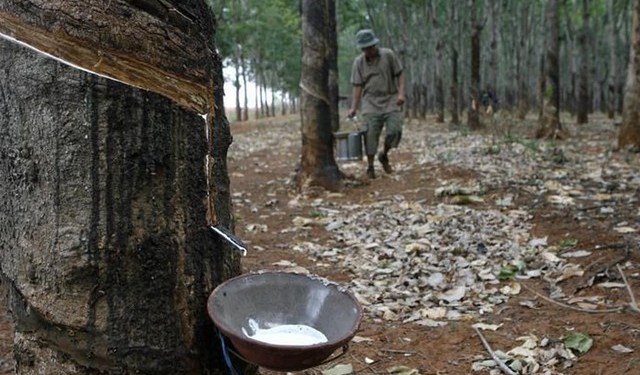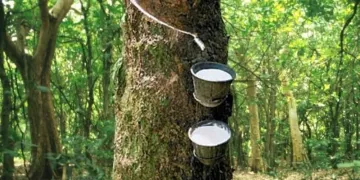KOCHI: The decision to allow rubber-based bitumen for laying new roads and repairing the existing roads will trigger a massive jump in rubber consumption, while bringing in significant cost savings to the government, said industry officials. The natural rubber modified bitumen (NRMB), or rubberised bitumen, contains just 2 per cent rubber (dry rubber). It will be supplied by Bharat Petroleum Corporation Ltd’s Kochi Refinery, which has a capacity to produce 50,000 tonnes per annum.
“If the Public Works Department (PWD) decides to use rubberised bitumen for even 10 per cent of its roads every year it would create demand for 60 lakh kg of rubber per year,” said C R Muralidharan, president of the Bharatiya Rubber Karshaka Morcha. On the one hand, this will help more than one million rubber farmers in the state, and on the other hand the use of rubberised bitumen will facilitate the construction of long-lasting roads. According to Muralidharan, the airport-seaport stretch in Kochi and the two-km stretch from Bakery Junction to Nagampadam in Kottayam – made using rubberised bitumen – lasted for about 8-9 years without any maintenance work, while the other roads required repair works every two years.
Indian Rubber Growers Association general secretary Siby J Monipally said that the NRMB would not be affected by temperature fluctuations – less bleeding at high temperature and less cracking at low temperature.
“Improved skid resistance and more service life are the booster effects, along with prime factors like saving of fuel; and reduction of noise pollution and atmospheric pollution. All these sum up to reduced maintenance costs of roads,” he said.
BPCL Kochi Refinery executive director Prasad K Panicker said the company can easily ramp up its capacity from the existing 50,000 tonnes per annum if there is additional demand. “We are equipped to meet any additional demand for rubberised bitumen,” he said, refuting reports that the company would not be able to meet additional requirements.
The production of natural rubber in 2013-14 stood at 8.44 lakh tonnes, as against consumption of 9.77 lakh tonnes. Though the shortfall is 1.33 lakh tonnes, the imports jumped 49 per cent to 3.24 lakh tonnes in 2013-14, thanks to the drop in international prices.
The rubber growers have been asking for higher import duty to protect domestic prices, which have fallen over 50 per cent in the last three years – from `240/kg in 2011 to `120/kg this year.
Meanwhile, the issue of rubberised bitumen may come up for discussion when the BPCL officials meet Chief Minister Oommen Chandy to hand over the dividend for the year 2013-14, it is learnt.
– newindianexpress.com



























